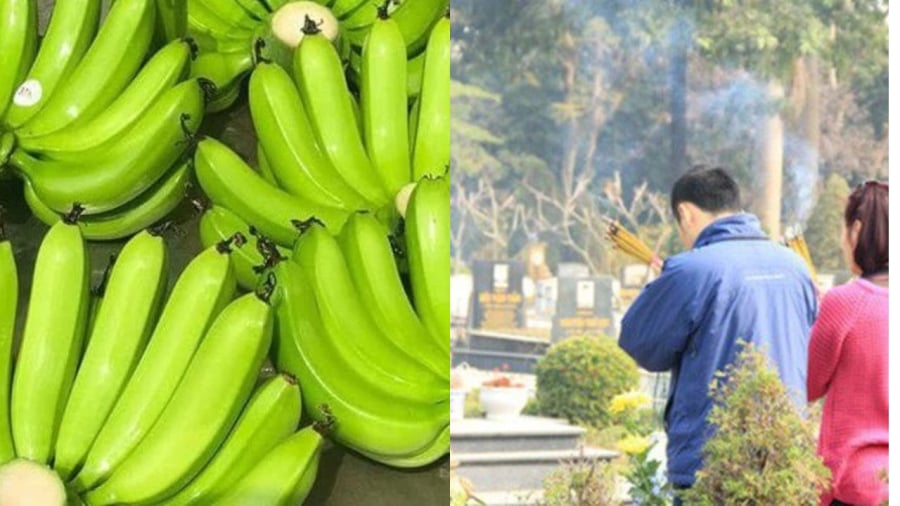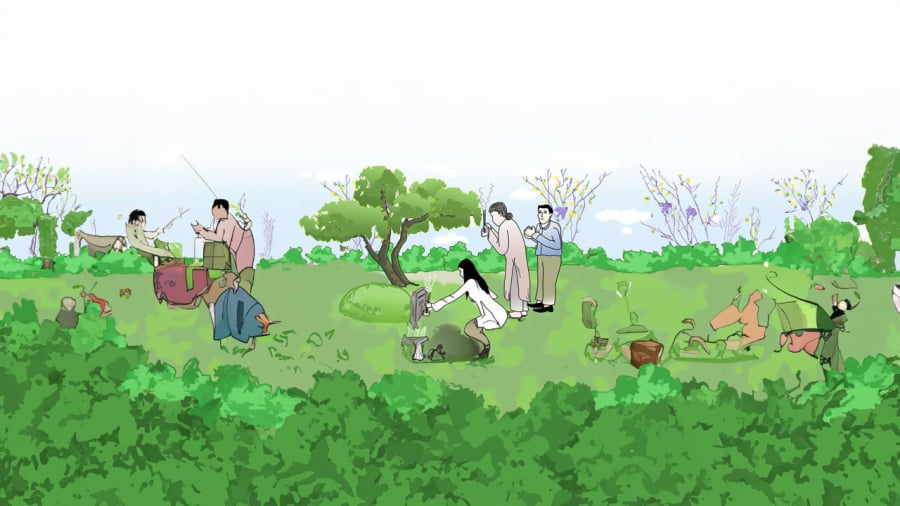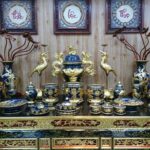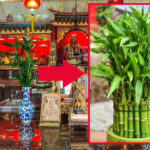Why Bananas Are Common Offerings at Home but Not at Gravesites
In Vietnamese spiritual life, bananas are a common fruit presented as offerings to ancestors. Bananas are widely cultivated in Vietnam and available year-round, making them a convenient choice for ancestral worship. Additionally, bananas grow on trees, keeping them off the ground and symbolizing purity.
However, bananas are believed to possess an attractive quality that can lure wandering souls. Placing bananas as offerings at gravesites may invite lingering spirits to partake in the fruit’s essence, potentially leading these souls back to the offerer’s home. According to traditional beliefs, this could bring negative spiritual influences and affect the well-being of family members, especially the young and elderly.

Bananas Are Reserved for Home Offerings
Understanding the Significance of Year-End Cemetery Visits and the Customs to Observe
‘Tảo mộ’ translates to ‘visiting and cleaning graves’, a beautiful tradition passed down through generations in Vietnam. This custom is observed during the Thanh Minh festival and continues to be practiced in many regions, especially towards the end of the year. The year-end ‘tảo mộ’ is often busier due to the dry weather, making it more convenient to tend to the gravesites.
During these visits, adults in the family offer prayers and presents to their ancestors while cleaning and maintaining the graves. It is a time to educate younger generations about their lineage and the importance of honoring their forebears. Many believe that during this period, the gates of the afterlife open, allowing souls to reunite with their descendants, including lonely wandering spirits.

Gravesite Visits Require Care and Respect
Superstitions and Taboos to Be Aware of When Visiting Gravesites
- Dress modestly and avoid wearing revealing or inappropriate clothing during gravesite visits.
- Maintain a respectful demeanor and refrain from loud conversations, arguments, or inappropriate jokes and stories.
- Do not step on or sit on gravesites.
- Do not touch or disturb offerings on other graves.
- Pregnant women, children under three years old, the elderly, and those who are ill or menstruating are advised not to participate in gravesite visits to avoid health risks associated with the cold weather.
- Refrain from taking photographs at the cemetery to prevent capturing unsettling images.
- Do not bring home offerings from other gravesites or take any items, such as soil, flowers, or plants, from the cemetery, as these may carry heavy negative spiritual influences.
- Avoid tending to or commenting on other families’ gravesites without permission.
- Visit the gravesite neither too early nor too late in the day, as the strong negative spiritual influences during these times may cause health issues.
This information is for reference and spiritual exploration only.



































